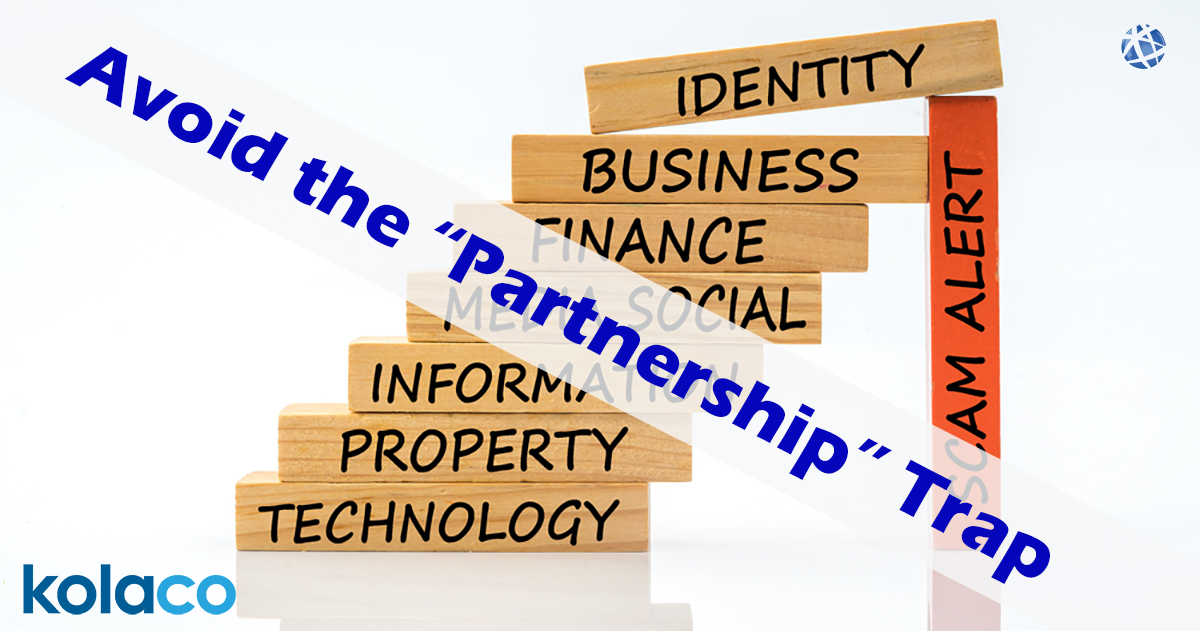The word partner gets thrown around a lot in business. “Let’s partner together.” “We want to help grow your business.” “We’re offering a partnership model.” It sounds collaborative, even generous—until you look at the fine print.
Lately, a growing number of firms are using the term partner as a sales tactic, when what they’re really offering is just a paid service. They’ll pitch themselves as invested in your success, but here’s the catch: they don’t share your risks, and they certainly don’t share your rewards. In other words, it’s not a partnership at all—it’s a vendor relationship wearing a partnership mask.
The Sales Pitch
These firms reach out promising to “help you grow,” and for a “small monthly fee,” they’ll provide:
Development or marketing staff
SEO or digital marketing support
Production or fulfillment help
HR, finance, or administrative services
They make it sound like they’re in the trenches with you. That they believe in your business and want to be part of your future. But the reality is simple: they’re getting paid no matter what. Your business could boom or bust—they still collect their fees.
What Partnership Actually Means
In the truest sense, a partner shares in both the burden and the bounty. That means they:
Invest alongside you
Share in the costs
Take a risk if things don’t work out
Earn rewards only if the business succeeds
If someone is collecting money up front, with zero financial exposure and no stake in your long-term success, they are not a partner. They’re a vendor. And that’s fine—as long as they’re honest about it.
Why the Word “Partner” Gets Misused
“Partnership” implies trust, alignment, and mutual benefit. It opens doors and lowers skepticism. It’s powerful language—especially for small businesses hungry for real allies.
But too often, it’s used as a smokescreen. These so-called partnerships are really just subscription sales models, designed to make you feel like you’re getting more than a transactional service. You’re not.
How to Spot the Faux Partnership
Before you sign anything, ask:
What risks are you taking if this doesn’t work out?
Are you investing actual resources to help us succeed?
Will you only profit if we profit?
Are you willing to defer payment or tie your fees to our results?
Real partners will lean into these conversations. Fake ones will dodge them or change the subject.
Final Thoughts: Watch the Language, Protect Your Business
There’s nothing wrong with paying for good services. There is something wrong with being misled. When a firm says they want to “partner” with you, make sure they’re using that word with the weight it deserves.
In business—as in life—real partners show up when things get tough, put skin in the game, and win with you, not off you.

